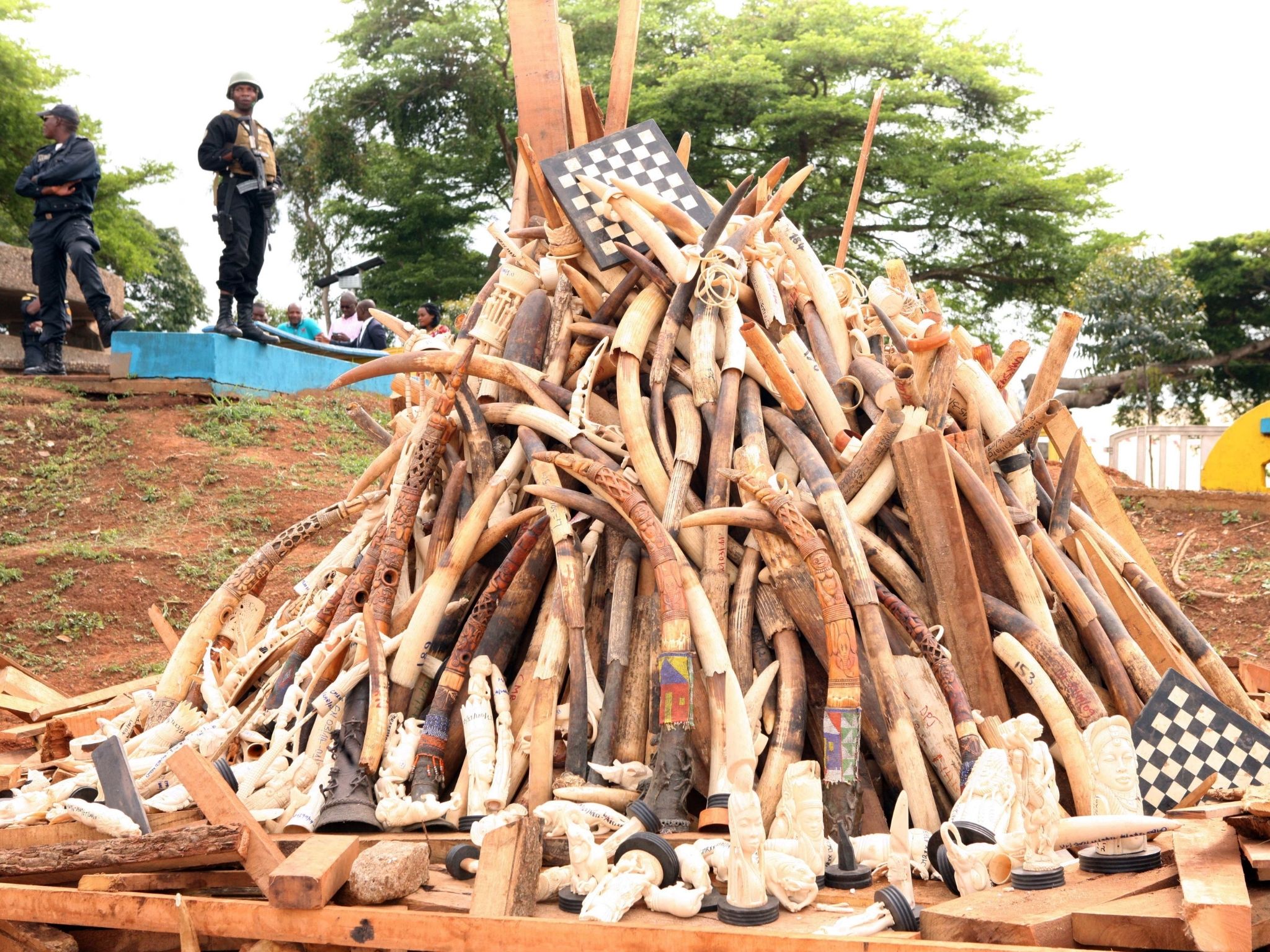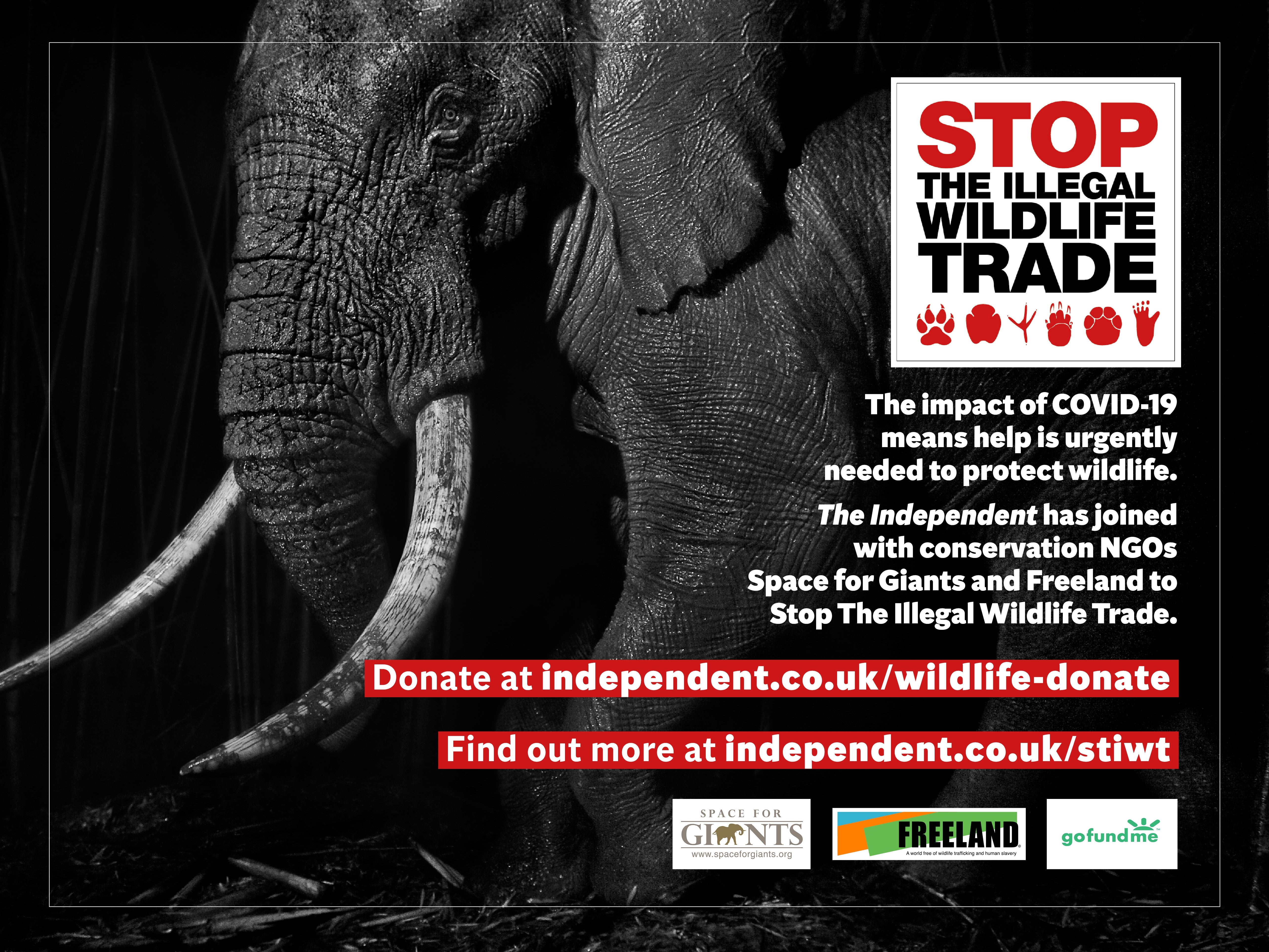West Africa stopping poachers but not flow of money from illegal wildlife trade, study finds
Despite seizures of illicit goods, nations still failing to investigate finances of criminal gangs behind trade

Your support helps us to tell the story
From reproductive rights to climate change to Big Tech, The Independent is on the ground when the story is developing. Whether it's investigating the financials of Elon Musk's pro-Trump PAC or producing our latest documentary, 'The A Word', which shines a light on the American women fighting for reproductive rights, we know how important it is to parse out the facts from the messaging.
At such a critical moment in US history, we need reporters on the ground. Your donation allows us to keep sending journalists to speak to both sides of the story.
The Independent is trusted by Americans across the entire political spectrum. And unlike many other quality news outlets, we choose not to lock Americans out of our reporting and analysis with paywalls. We believe quality journalism should be available to everyone, paid for by those who can afford it.
Your support makes all the difference.West African states are cracking down on poaching but not the flows of illicit money that fund the illegal wildlife trade, a new report has revealed.
The paper from the Royal United Services Institute (RUSI) found that West Africa has emerged as the epicentre of the global illegal trade through its role in sourcing and transporting wildlife such as elephant ivory and pangolin scales.
Yet while customs enforcement agencies are making seizures of illicit goods in countries like Cameroon and Nigeria, the latter of which is responsible for over half of illegal wildlife exports on the continent, financial investigations of criminal organisations are lagging behind. The result of this, argues the RUSI report, is that enforcement is focused on agents on the ground, often low-level poachers, rather than the kingpins and gang bosses who control the trade and make the real profit.
The illegal wildlife trade is believed to be the world’s fourth-largest illegal business after arms, drugs and human trafficking. According to the study, “West Africa’s growing role as a major transit hub in global IWT supply chains threatens wildlife across the African continent.”
The report was written in partnership with the Inter-Governmental Action Group against Money Laundering in West Africa (GIABA), which is a specialised institution within the Economic Community of West African States. In it, a survey of 12 countries in the region found that three quarters of them had never conducted a parallel financial investigation into a case of IWT.
Reasons for this included “lack of awareness of IWT as a predicate offence to money laundering”, a lack of training, resources, inter-agency cooperation and legislation. The report cited observers who found that a lack of international cooperation was also at fault, with each country’s investigation occurring in a silo.
Stop the Illegal Wildlife Trade
We are working with conservation charities Space for Giants and Freeland to protect wildlife at risk from poachers due to the conservation funding crisis caused by Covid-19. Help is desperately needed to support wildlife rangers, local communities and law enforcement personnel to prevent wildlife crime. Donate to help Stop the Illegal Wildlife Trade HERE
The analysis also showed that very little is known about how money is moved between players in West Africa and those the wider, worldwide supply chain. An organisation of financial intelligence units around the world found that agents on the ground in Africa were often paid in cash, commodities or cryptocurrency.
Financial Action Task Force (FATF), which is the money-laundering and terrorism financing watchdog, asked for countries to assess their exposure to poaching money and also called for countries to take more action on the money behind the illegal trade in a June 2020 report endorsed by the Duke of Cambridge Prince William in a video.

Alexandria Reid, the study’s main author said: “West Africa has become the consolidation and export point of choice for wildlife traffickers across Africa. The relocation of trafficking networks is driven by a potent combination of weak law enforcement capacity, well-connected transportation systems, and endemic corruption.
“The forthcoming West Africa Strategy on Combating Wildlife Crime offers an unprecedented opportunity to tackle these organised crime networks, but only if financial investigations are at the heart of law enforcement responses.”
Join our commenting forum
Join thought-provoking conversations, follow other Independent readers and see their replies
Comments